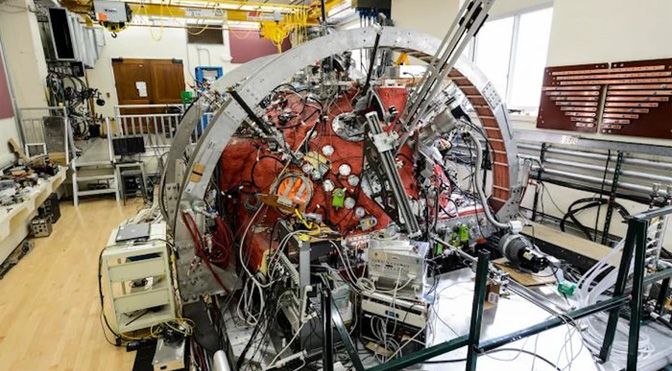The sun is easy to spot in the sky, and it’s not very far away in astronomical terms. So, scientists have spent a great deal of time studying our local life-giving star. However, the sun is also a nuclear inferno that will eradicate any people and most robots that get too close. To study the star up close, researchers at the University of Wisconsin-Madison built a miniature sun. They call it the Big Red Ball (BRB), and it could help us understand some fundamental solar processes.
Like most main sequence stars, the sun is a giant ball of hydrogen massive enough to sustain a nuclear fusion reaction. The hydrogen fuses into helium, and helium eventually fuses into heavier elements as stars exhaust their fuel. The sun still has plenty of life left, so it’s mostly hydrogen with about one-quarter helium.
The BRB uses helium to create analogous conditions to those on the sun, but without all that pesky nuclear fusion. As experiments have shown, it’s extremely difficult to maintain nuclear fusion on Earth. The BRB is a hollow sphere almost ten feet (three meters) in diameter. The team filled that space with helium gas (which again is a major component of the sun) and ionized it with microwave heating to form a sun-like plasma. Powerful magnets confine the plasma, and an electrical current causes the miniature sun to spin a bit like the real one.









Comments are closed.